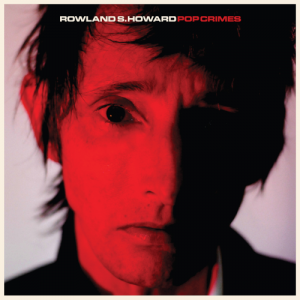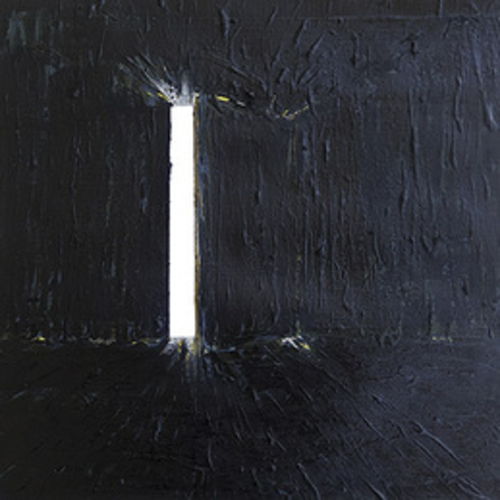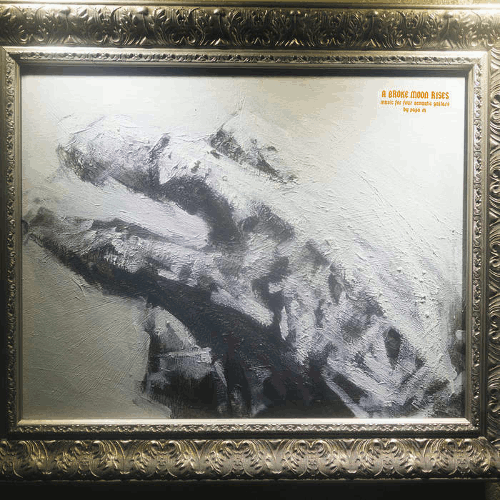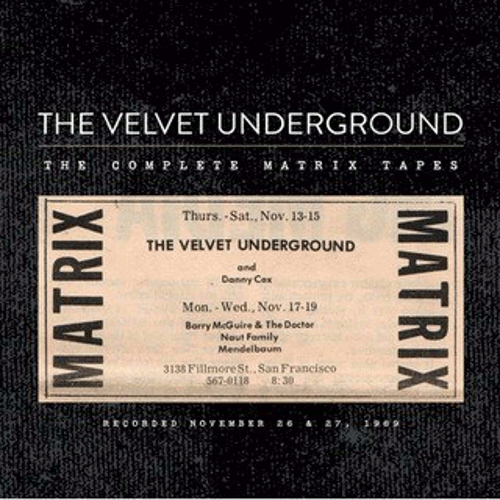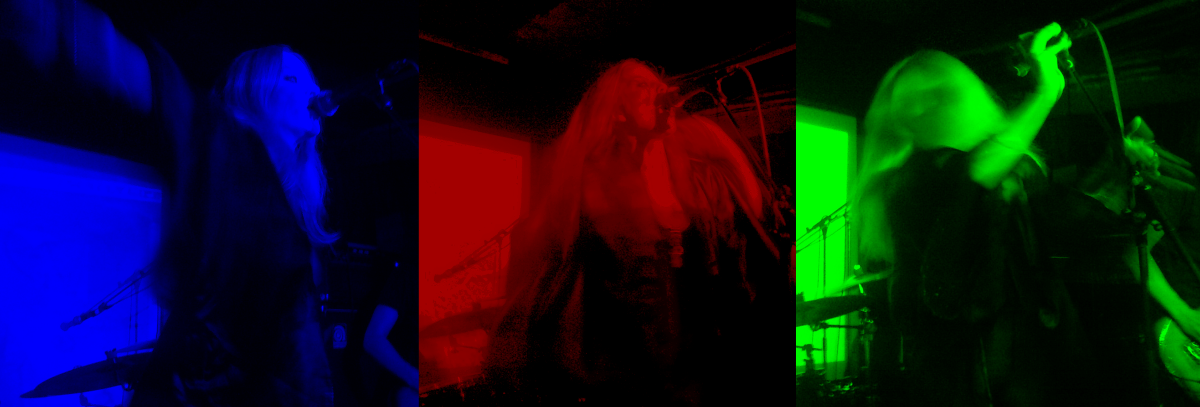Mute (Europe) / Fat Possum (North and South America) / Bloodlines (Australia)
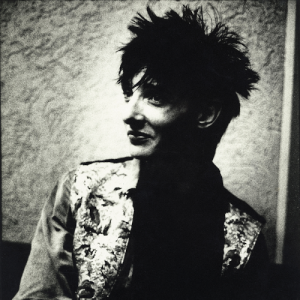 Rowland S Howard is one of the heroes of the post-punk musical landscape, and possibly the most innovative and unique guitarists to ever venture forth from Australia. As a member of The Birthday Party, his razor-scarred, angular guitar swathes traced the routes for Nick Cave‘s messianic vocals.
Rowland S Howard is one of the heroes of the post-punk musical landscape, and possibly the most innovative and unique guitarists to ever venture forth from Australia. As a member of The Birthday Party, his razor-scarred, angular guitar swathes traced the routes for Nick Cave‘s messianic vocals.
After they split, he passed through the dust-ridden gothic romance of Crime And The City Solution, collaborated to murderous effect with Lydia Lunch and released two albums of wonderfully barbed and widescreen visions as These Immortal Souls, as well as producing some dandyish debauchery with Nikki Sudden and Jeremy Gluck. Incredibly, over the course of his thirty-odd years in the industry, he only made two actual solo albums and these have finally been given a belated vinyl re-press.
Teenage Snuff Film appeared seven years after the final These Immortal Souls album and found him in threatening and imperious form. With Brian Hooper on bass and old pal and bandmate Mick Harvey on drums and organ, this set of songs has fangs and drips with danger and menace, lust and betrayal. They highlight his sneering vocal style, resigned yet ready to engage, as well as his love of words and twisted, romantic imagery.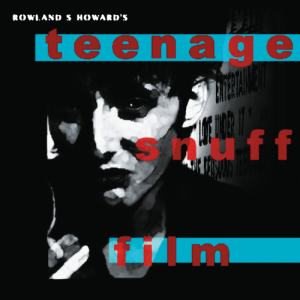
The words swirl like wreathes of cigarette smoke from his curled mouth as the guitar slung carelessly over his shoulder smoulders and sparks, conjuring up an image of dust-caked, stinkboot murder country drama, hysterical violin at times tangling with the vicious coils of guitar, a doomed romantic vision under the desert sun.
The bass is rhythmic and doomy, plenty of reverb to offset it against the trebley pierce of the squalling guitar. The drums seethe like a snake on “Breakdown”, but the reverb on the guitar is to die for. You can almost see him sneering, static and cigarette-bound, revelling in the words, spewing them out along with the tobacco smoke. “Cold as a distant star, hot as a stolen car”, his couplets reek of despair and unease. There is something about the tambourine on “She Cried” that recalls These Immortal Souls, but there is also a touch of ’60s pop about the chorus, as if it were a cruel response to something The Shangri-las may have recorded, with his shrieking, burning guitar poured like petrol over the embers of the song.
“I Burnt Your Clothes” is stark and incredibly harsh, while “Exit Everything” has a delicious Brian Hooper bassline and what sounds like a hydraulic jackhammer as part of the texture, “a powder burn to the face to remember you by” shines tough imagery onto the strung out and psychotic guitar. It sounds as though he is wringing its neck, but it is fighting back as he does so, with the squealing violin just adding to the melee. Rowland sounds so vibrant here, in control, oozing decadence and sin, a mirror image of the character in the song where “the windows blew out as you blew in”. The whistling Hammond on “Silver Chain” is played by long-time foil Genevieve McGuckin and is the sound of broken hearts trampled in the dust, the tambourine-like spurs heading for a showdown or a suicide. It is hard to say which, but it has that overarching sense of despair that was captured on some of The Bad Seeds‘ Your Funeral… My Trial, the Gothic imagery draped over the bones of the track. For me though, the pièce de résistance is “Undone”; a seething bed of love, lust and unbridled desire. The bass and drums crowd the action and thrust significantly, urging the guitar onwards towards some messy end. It is sexy and sweaty: “Why would I shake your hand, when I can shake your hips”. The imagery is brazen and inflamed, and the guitar is almost bursting as they hurl themselves to the conclusion where “all those secret parts of you, I won’t, I cannot give them back”.You kind of need a rest after that, but the album still has a sting in its tail as the final track “Sleep Alone” descends into a fiery maelstrom of guitar abuse. It is tortured and wild throughout, and the rhythm section is punishing in its intensity. The bass sounds like a motorcycle, and the noise is ragged and breathing heavily as the guitar ascends into the stratosphere, catching fire and shooting flames as it goes. It is breathtaking ending and one that fits one of the strongest suites of songs you will hear, the vitality of the band bursting out.
Ten years after this tour de force, Howard found himself back in the studio with Mick as well as producer Lindsay Gravina and Hungry Ghosts‘ JP Shilo for what would be his last recordings. Just from the cover photograph alone you sense a serious waning of his vitality. He almost looks bemused or shocked, and that is no great surprise as he was already pretty ill. Pop Crimes is much more subdued and the guitar fireworks are barely present. The delivery is worn, although the addition of Jonnine Standish‘s voice on “A Girl Called Jonny” add some needed sensuality as she intones “I put my fingers in his mouth”.The beat sounds familiar, the spurs-like cymbals reeling back the years, but the guitar seems buried. It somehow just sounds less vital, there is less anima, but perhaps he can feel the life slipping away; maybe there is pain in the voice as it wavers and struggles with some of the delivery. There is however a lovely bass and guitar combo on “Pop Crimes” itself, and the wordplay and imagery are up with his best. “Does the hissing of their coiffured snakes desiccate your soul?” is a delightful line and although his voice is a little laboured, he relishes the feel of the words and the guitar sounds alive again in his hands.
The guitar is searing on “Wayward Man” and the shimmering love song “Ave Maria” is shrouded in sepulchral gloom. It is down to the final track “The Golden Age Of Bloodshed” to capture the sort of vitriol and energy that we might expect, and that was missing from most of what came before. It has the kind of power that Snuff Film contained, and is a good note on which to end. Unfortunately, there are only eight tracks here and two of those are covers: a countrified cruise through Townes Van Zandt‘s “Nothing” and a bizarrely plodding version of Talk Talk‘s “Life’s What You Make It”, its half-hearted guitar squalls and leaden bass sound forced and the song doesn’t really suit his voice, although the creeping organ and thoughtful drumming do save it from disaster. Compare this to the havoc he wreaks on Billy Idol‘s “White Wedding” on the previous album and they are like chalk and cheese. That cover, with its descending piano run and the gritted-teeth delivery full of disdain, transforms the song and makes it his.Teenage Snuff Film is absolutely essential and can be enjoyed again and again, whereas Pop Crimes can be a difficult listen, but is a necessary document of a last roll of the dice. Possibly a dying man, he did what he could and it deserves a respectful audience.
-Mr Olivetti-
